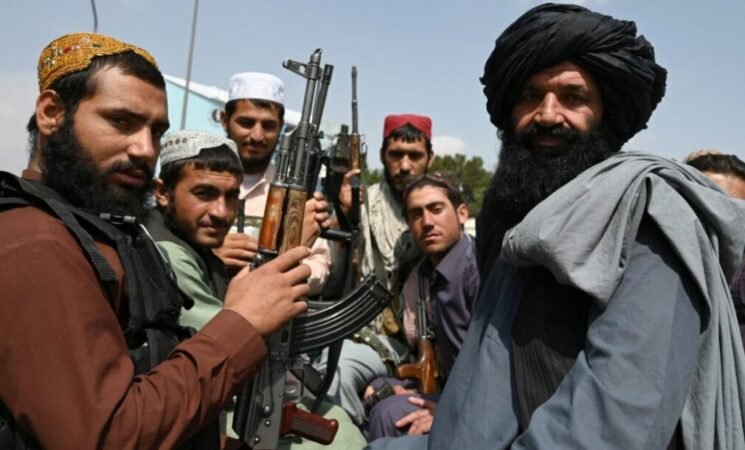1 August 2022, NIICE Commentary 8166
Dr. Mirwais Balkhi
Rise of Totalitarianism
Totalitarianism is a major potential hazard and threat to our world today. An order in which popular authority is exerted by a group of selfish people for power and wealth, by attacking on values, identities, cultures, and diversity under the guise of state security and national values. This monopolistic order in human history has manifested itself in the shape of communism, fascism, and Nazism in the West and as well as religious authoritarian regimes and tribal administrations in the Islamic east, resulting in agony for humans and disaster for the whole communities.
With the end of the Cold War, totalitarianism appeared to be weaker, but it might have remained on the ground until it exploited the plural nature of the democratic order of the world and re-emerged under the nationalism and religious politics. On the one hand, Russia under Putin’s administration follows a totalitarian course, and on the other hand, Islamist groups in the Islamic world are opposing the democratic and pluralistic order. Both are prominent figures in the world of totalitarianism today.
These two threats have emerged in a situation where other political units opposed to the democratic order have at least believed in a pluralistic world and have replaced confrontation with interaction. China is a prime example of an authoritarian regime that has shifted away from a policy of confrontation by focusing on economic interaction.
Putinism and Talibanism: Enemies of Democratic Order
At both the regional and global levels, the Taliban and Russia are competing regimes for democratization and plural order. One considers a world superpower regaining its lost dominance at the global level, while the other considers locally blending religion and tribal culture to build a totalitarian Islamic state in and surrounding Afghanistan. Therefore, both Putinism and Talibanism are opposing a democratic order and see it as a threat to their survival.
Putinism means the order of an authoritarian government that seeks to maintain power based on human greed with slogans of nationalism, pure identity, and authoritarian attitudes. This is similar in behavior of the Taliban in Afghanistan with its Islamic taste and colour.
Putinism and Talibanism are not limited to Russia and Afghanistan. Both totalitarian ideologies (Putin’s and the Taliban) are fully aware that they must back their friends and people who share the same beliefs as them in order to strengthen their position and make allies for themselves. We have witnessed Putin’s efforts to support Bashar al-Assad in his position in Syria. At the same time, Moscow provided political assistance for the Taliban to fight the NATO and US allies. On the other hand, the Taliban in Afghanistan provide backing and assistance to all Islamic totalitarian organizations throughout South and Central Asia in their efforts to topple subtle democracies and consolidate power inside their own countries.
Thus, both ideas and approaches of Putin nationalism and the Taliban Islamism are a major threat to a democratic world order in which governments have either institutionalized or are practicing institutionalization.
Afghanistan and Ukraine: Resistance Alike
The Ukrainian People’s Resistance Front against Russia and the Afghanistan People’s Resistance Front against the Taliban are two significant fronts in the global battle against the expansion of totalitarianism, fighting on both the Western and Eastern fronts. As objective examples of totalitarianism, both Putinism and the Taliban pose an equal threat to the globe. While the world’s attention is focused on Ukraine, this makes sense given that Ukraine is situated in the west, and the true source of the threat is behind the doors. However, the threat posed by the Taliban is unconventional, and they are currently engaged in a war of attrition. The Taliban have used terror to not only destabilize the vast region encompassing Southwest Asia and Central Asia, but they have also entered NATO territory via unconventional means and are posing a threat to the people who live there.
Totalitarian Forces Likely Join Together
There is no assurance, in particular, that the two anti-democratic forces would not unite in this fight and stand side by side with a strategic agreement. In the face of democratic order and conflict with Moscow’s adversaries, Putin’s strategic target is the Taliban. Of course, in this setting, Russia had covert and then open connections with the Taliban, and these relations continue to exist now. Moscow and its allies are likely to take the initial steps toward recognizing the Taliban in near future. Lower-level diplomats have essentially exchanged their positions.
Both Fronts Need Global Support
In a world that is increasingly globalized, governments that support democratic order, such as the United States, Europe, and Asia, need to refrain from thinking about the threat to Afghanistan on a national level, even if they view the situation in Ukraine as posing a danger to the continuation of democracy. Defending the authoritarian regime of the Taliban, which welcomes Islamic extremists from all over the world and practices totalitarianism, is severe threat.
As much as Vladimir Zelensky defends democracy and liberal ideals, Ahmad Massoud in Afghanistan speaks of the establishment of a democratic and pluralistic administration that is acceptable to all the people of Afghanistan, and that the people are governed by their political will.
The failure of the Afghanistan’s people resistance to totalitarianism represents the defeat of the founders of the democratic order and the policy of pluralism in a region where the democratic order is shaky and has not yet experienced the process of strengthening the nation-state with developed indicators. It’s only the beginning. Democracy is not institutionalized in any South Asian, West Asian, or Central Asia, and semi-institutionalized system are regulated by the nature of quasi-democracy. Thus, there is a need to institutionalize democracy to strengthen it.
Dr. Mirwais Balkhi is Visiting Fellow at NIICE.

